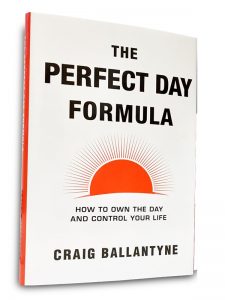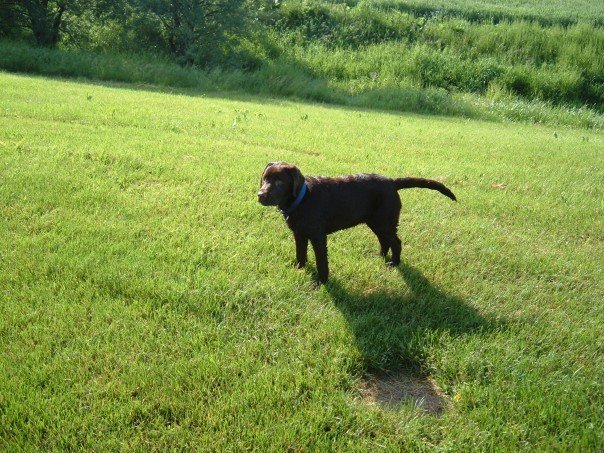My dog, Bally, is getting dangerously old. He turned 12 at Christmas.
He sleeps longer and deeper than ever. He no longer wants to go on an afternoon walk. He climbs the stairs, rather than leaping, onto the deck.
“There’s a big difference between 12 and 13,” a vet said. “One day he won’t be able to get up, and when that happens, it’ll be time to let him go.”
Last week while I was gone on a work trip and Bally was staying with Grandma, she said he didn’t get up to greet her at the bottom of the stairs in the morning.
She found him on his mat. He was in too much pain to move.
Fortunately, he was still eating (the ultimate test of his health), but Grandma had to bring his dog bowl over to him for breakfast and dinner.
“He was fine the next day,” she said. But the warning shot had been fired.
He’s getting old.
And so are we.
From the moment you were conceived, your expiration clock began ticking. Every day is one day closer to your last.
That is why time is your most precious commodity.
I work hard to help you see that. It’s more important than any material thing you might accumulate.
So you need to use it wisely—on the things that really matter.
Let me put this in perspective. Imagine your time was money in the bank. At the start of your life, 100 years were deposited into your savings account. (If we’re talking about death, let’s at least be optimistic.)
One hundred years is 36,500 days, 876,000 hours, or about 52 million minutes.
That may seem like a lot of time. But each second you are alive, the account starts depreciating in value.
And you can never add back to it.
There’s no lottery that gives you a windfall of decades.
There’s no investment plan that gives you eternal life on earth.
Eventually, you’re going to run out of time.
That’s why you must use it well—both at work and at home.
That’s why you need to ask yourself, every day: Am I living my “why,” my purpose, my mission? Am I being my most authentic self? Am I present and genuine in my relationships? Do I strive to better not only myself but my community? Do I work tirelessly to make the world a better place than I found it?
These are the things that mater after you’re gone. The money will fade. Houses will crumble. Cars will rust. Stuff—however much you may have—will decay.
Apple CEO Steve Jobs knew this all too well.
In his commencement address to the Stanford University class of 2005, Jobs said, “I have looked in the mirror every morning and asked myself, ‘If today were the last day of my life, would I want to do what I am about to do today?’ And whenever the answer has been ‘no’ for too many days in a row, I know I need to change something.
“Remembering that I’ll be dead soon is the most important tool I’ve ever used to help make the big choices in life. Almost everything—all external expectations, all pride, all fear of embarrassment or failure—these things just fall away in the face of death, leaving only what is truly important.
“Remembering that you are going to die is the best way I know to avoid the trap of thinking you have something to lose. You are already naked. There is no reason not to follow your heart.”
I couldn’t have said it better myself.
The most precious minutes are the ones we have today, so let’s make the most of them.
Let’s capture memories with loved ones.
Let’s take a risk and help someone in need—even if we fear judgment or criticism.
Let’s spend time asking ourselves tough questions about what matters.
And let’s act with honesty, love, and integrity like there’s no tomorrow.
If you need me, I’ll be over on the living room floor rubbing a dog’s belly.
 Don’t let time slip away. Make the most of it by knowing what you want yourself to become and what you want to give to the world.
Don’t let time slip away. Make the most of it by knowing what you want yourself to become and what you want to give to the world.
Make the world more perfect by building your Perfect Day.
Start right now, with a FREE copy of “The Perfect Day Formula.”


